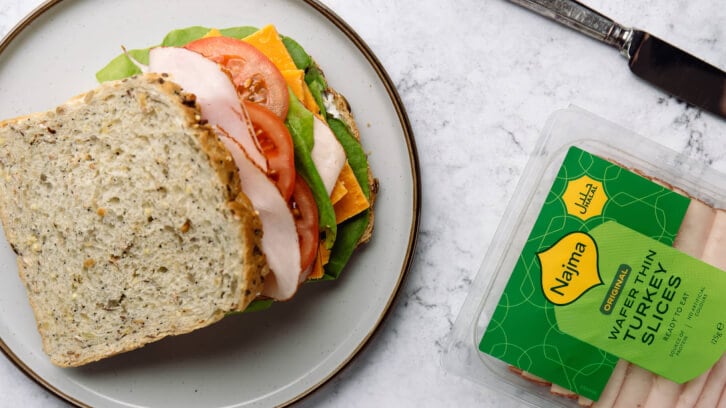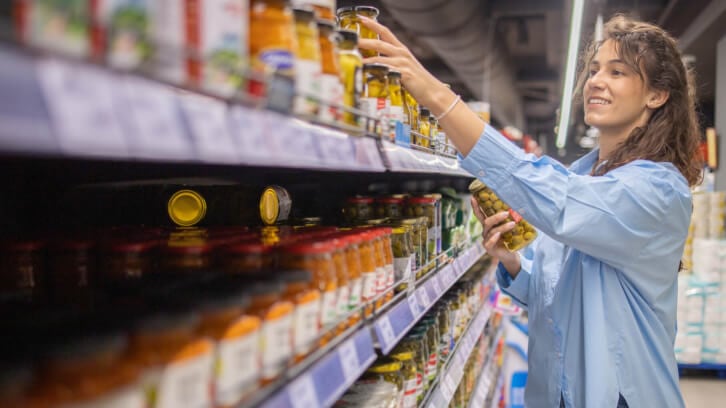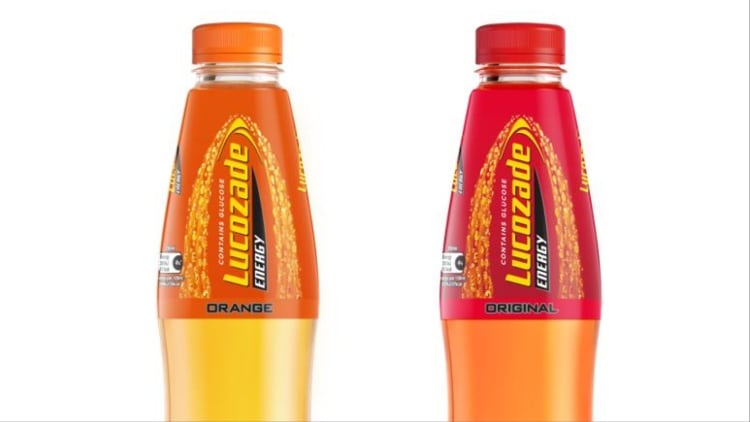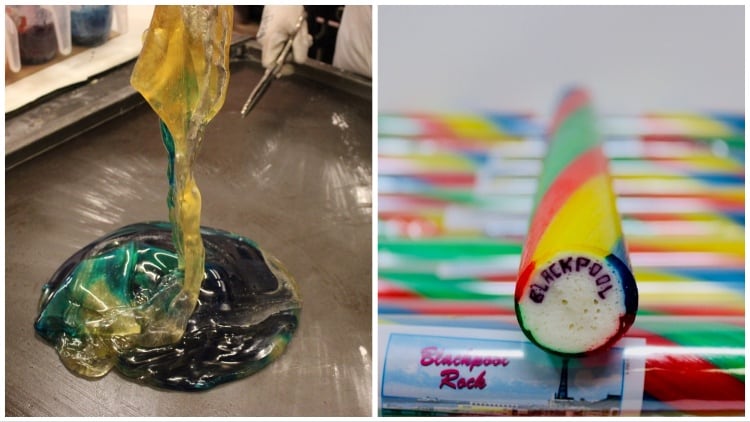While some areas are notably linked to a specific cuisine – Italian food for example brings vivid imagery of pizza and pasta to mind – the UK’s food culture is much more ‘borrowed’.
Far from the outdated view of fish and chips, the nation’s ever-growing cultural vibrancy has seen an abundance of cuisines grace its hospitality and retail sectors.
According to Mintel’s UK World Cuisines Market Report 2023, as many as 92% of Brits ate world cuisines at home in three months to March 2023.
Golden Acre Foods which saw its 25th birthday this year, is among the companies supplying the UK with such variety. It presently sources from more than 10 countries, with Poland, Germany and Spain accounting for the biggest proportion of its business.
In 2021, the company launched its first range of Romanian brands to meet the changing needs of the UK population. And, more recently, it expanded its World Foods range to feature a range of South Asian brands including spice mixes, snacks, sweets and drinks.

The company has also developed a number of brands in direct response to changing shopper and customer needs. Alongside Golden Acre Yogurts, the company produces Najma, a leading UK halal cooked meat brand; Elsinore, a Scandinavian-inspired seafood brand; Acti-Shake, a nutritious low fat, high protein drink; and Jaldee Eats, a new range of on-the-go halal food.
Since its inception in 1999, it has continued to grow as a business and now boasts a revenue of £120m a year.
The evolving World Foods market
Speaking with the business’s sales director, Dan Sparshatt, on the topic of World Foods, he explained the demographic, and thus food landscape, have changed significantly since Golden Acre’s beginnings – and this has been reflected in the company’s own evolution too.
“Our business started in dairy, supplying a variety of products to both retail and foodservice customers, then around 15 years ago we began to diversify,” Sparshatt said. “The UK Polish population was growing and we began discussions with retailers about serving the needs of this growing demographic through providing a range of authentic Polish food brands.”
And the UK landscape continues to evolve.
“We have a diverse population with a wide geographic spread. And whether inspired by travel, social media or cooking programmes, people are keen to try new cuisines and experience new tastes. As a result, the World Foods offering in supermarkets has needed to adapt and grow to reflect changing shopper needs," he continued.
It’s not just about having a set range of products to meet consumer needs either, as Sparshatt explained: “Population data tells us the geographic spread of our World Foods audience is now broader than ever.
“We work with retailers to help map this audience to make sure the right range is in the right stores, but add to that a growing interest in World Foods from the wider population and there is a strong argument to expand distribution even further.
“Retailers also need to make sure they do enough to communicate their offerings to each target audience and attract them away from specialist independent stores. And buyers and suppliers must make sure there is a steady stream of new, authentic products entering the category, to keep ranges exciting and up to date.”
Authenticity in world cuisines
According to Sparshatt, ‘authenticity’ within World Foods has been gaining momentum in particular, with shoppers keeping a close eye on ingredient labels.
“Authenticity is key to consumers, it’s a trend we’ve observed for the last few years and if anything, it is becoming even more important within World Foods.
“In 2022 we brought leading South Asian spice brand Suhana to UK supermarkets. It is a familiar and much-loved brand that appealed to both World Foods shoppers and mainstream shoppers looking for a more authentic cooking experience. We have since expanded our range of South Asian brands into UK retail, encouraging consumers with Indian, Pakistani and Bangladeshi heritage to shop UK supermarkets alongside specialist retailers.”
Alongside an appetite for authenticity, Sparshatt said there’s an “exciting” fusion trend emerging between India and Chinese cuisine, such as stir fry and soy sauce alongside “the spicy punch of Indian cuisine”.
Findings from Mintel's report revealed that 85% of world cuisine consumers in the UK would be interested in trying a new cuisine that shares ingredients with another world cuisine they like.
Changes to UK demographics have also helped influence the evolution of World Foods further.
“For example, the growth in the UK Romanian population has been significant over the last 10 years,” offered Sparshatt. “ In response, in 2021 Golden Acre launched a range of popular Romanian brands within UK supermarkets, fuelling further growth for the category.”
Managing supply chains
Of course, recent challenges around supply chains will have weighed particularly heavy on the shoulders of businesses like Golden Acre.
Sparshatt said there have been two main hurdles: “Early 2024 saw the introduction of Export Health Certificates (EHC) on medium and high risk goods coming into the UK. The opening of the Border Control Posts (BCP) on 30 April, and the commencement of both documentary and physical checks, has led to a significant increase in charges for all Products of Animal Origin (POAO). What is still unclear, at this early stage, is the length of delays we can expect for any checks that do take place.
“The second challenge is linked to specific situations that arise in the supply chain. The Red Sea supply route has seen disruption for goods coming from the Middle East and South Asia transiting through the Suez Canal. Many vessels are diverting around the horn of Africa, meaning longer shipping times, port congestion on arrival, increased emissions and a surge in costs for shipping containers.”
A key focus for all companies importing and/or exporting goods will be ensuring they are up to date with the ever-evolving regulations and processes – not an easy feat. To this end, the Golden Acre team has expanded post-Brexit, focusing in on certain skillsets. This has included recruiting transport and customs experts to manage the additional administration needed to import products into the UK.
“We have worked closely with our partners in the EU to help guide and support them through the UK changes as this becomes increasingly complex,” he concluded.
Driven predominately by the pandemic and intensified by these more recent events, the need to strengthen our domestic supply chain has been squarely thrust into the spotlight – but will this hinder suppliers such as Golden Acre in the future?
“We absolutely support and recognise the drive to source food locally and sustainably in the UK,” answered Sparshatt. “At Golden Acre, we are serving a diverse population’s love of brands and food from their home countries, which in most cases cannot be produced within the UK. We do look for opportunities to make these brands locally, but where we cannot, we then try to bring these to the UK in a sustainable and cost-effective way.”





